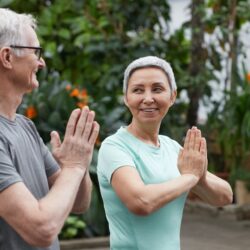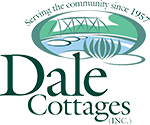
The benefits of physical fitness are well-documented and widely accepted. However, many people are unaware of physical fitness’s benefits in assisted living settings.
Assisted living is a type of housing designed for seniors who need help with daily living activities, such as bathing, dressing, and eating. These residences typically provide social and recreational activities as well.
Physical fitness can help residents of assisted living facilities stay independent and active. Exercise can improve strength, flexibility, balance, and endurance. These improvements can help people perform activities of daily living more easily and reduce the risk of falls.
In addition, physical activity can help to improve mood and cognitive function. It also has been shown to reduce the risk of developing dementia. Social activities that take place in group exercise classes or other fitness programs can also provide important social interaction for residents.
Tips for Maintaining Physical Fitness in Seniors
There are a few things that seniors can do to make sure that they are physically fit:
1. Get regular checkups and screenings: It is important for seniors to see their doctor regularly and to get screenings for things like blood pressure, cholesterol, and osteoporosis.
2. Eat a healthy diet: A diet low in saturated fat, cholesterol, and salt can help seniors maintain a healthy weight and reduce their risk of developing chronic diseases.
3. Be physically active: Physical activity can help seniors to maintain their strength, flexibility, and balance. It is important to find an activity that you enjoy and that you can do regularly.
4. Quit smoking: If you smoke, quitting is one of the best things you can do for your health.
5. Limit alcohol consumption: Drinking alcohol in moderation can be part of a healthy lifestyle, but limiting your consumption to no more than two drinks per day is important.
6. Get enough sleep: Most adults need seven to eight hours of sleep per night.
How Often Should Seniors Participate in Physical Activity?
There is no one right answer to this question, as the amount and type of physical activity that is right for each individual may vary. However, experts generally recommend that seniors participate in at least 150 minutes of moderate-intensity physical activity each week.
Some examples of moderate-intensity aerobic activities include:
- Walking
- Hiking
- Bicycling
- Dancing
- Gardening
Some examples of vigorous-intensity aerobic activities include:
- Jogging or running
- Swimming
- Tennis
- Basketball
- Jumping rope
Some examples of strength-training activities include:
- Weightlifting
- Resistance band exercises
- Bodyweight exercises
- Yoga
- Pilates
How Can Seniors Stay Motivated to Exercise?
As you age, you may feel less motivated to exercise. You may feel that you don’t have the energy or that you are too old to start. You may also feel that you will never be able to get into shape. However, these feelings can lead to inactivity, which will make you feel even worse.
Here are some tips to help you stay motivated to exercise:
- Find a friend or family member to work out with you.
- Set goals that are realistic and achievable.
- Find an activity that you enjoy.
- Make it a part of your daily routine.
- Find a group or class that you can join.
- Set up a home gym or workout area.
- Invest in some workout equipment.
- Hire a personal trainer.
- Join a gym or fitness centre.
The Bottom Line
In conclusion, The benefits of physical fitness in assisted living vary. From improved mental and physical health to increased socialisation opportunities, there are many reasons why seniors should consider getting active. With the help of a bit of planning and some simple equipment, seniors can quickly get started on a fitness routine that will suit their needs and lifestyle.
For aged care services in Perth, Dale Cottages offers independent village living, residential care, home care services, and a range of aged care services. Get in touch with us.
